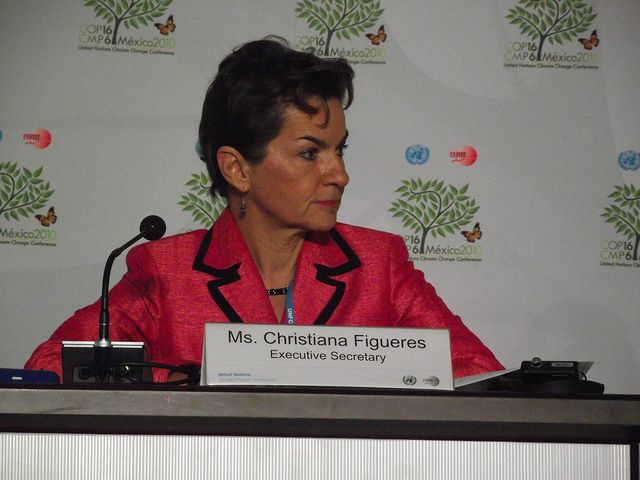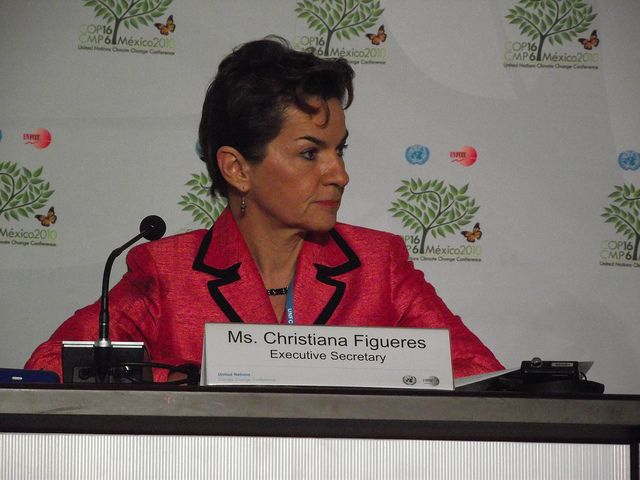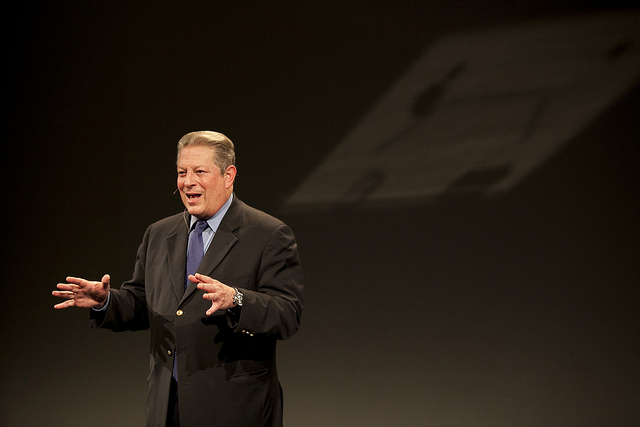UN Climate Chief looks to businesses to show the way to a low-carbon future
The UN’s Climate Chief is looking to the CEO’s of some of the world’s largest corporations to show governments the way forward to a low-carbon future.


The UN’s Climate Chief is looking to the CEO’s of some of the world’s largest corporations to show governments the way forward to a low-carbon future.
Speaking to the Associated Press earlier this week, Christiana Figueres claimed that the influence of companies, such as Coca Cola, Unilever and Virgin, on governmental decisions is something that can not be ignored. With governments arguing over how best to share the responsibility of climate change mitigation, Figueres believes that the contribution and actions of key  business leaders in the private sector could be decisive.
business leaders in the private sector could be decisive.
As part of her campaign, Figueres met with corporate leaders at the World Economic Forum in Davos and on a cruise to the Antarctic, organized by the much publicized environmental campaigner and former US Vice President Al Gore.
“I'm hoping to accelerate what I call the push and pull process,” Figueres told the Associated Press. With governments acting as the pull factor through the promotion of green technologies and by providing increasing access to renewable energy, it is the large corporations, Figueres explains, that have the push factor. “Companies, particularly these very, very high-powered companies that ... have the ear of many of the decision-makers and the opinion leaders of different countries, they can act as a push factor.” Figueres singled out Walmart, Coco-Cola and Unilever who had “looked at their own production and up and down their value chain” as a means of reducing their respective carbon footprints.
Earlier this month, as a further example of the UN climate agency’s focus on business, a database was set up to showcase the successful strategies that companies are using to adapt to climate change while simultaneously increasing their profits and using their resources more efficiently. The database, which can be accessed through the UN Framework Convention on Climate Change website, features more than 100 examples from companies such as Coca-Cola, Levi’s, Microsoft and Starbucks, which share the details of their business-friendly adaptation practices.
 “By showcasing private sector adaptation success stories, we intend to help both communities and businesses become more climate-resilient and to put the benefits and business sense of adaptation firmly on the agenda of the private sector,” said Figueres. “Climate risks which affect communities around the world are always also business risks,” she added.
“By showcasing private sector adaptation success stories, we intend to help both communities and businesses become more climate-resilient and to put the benefits and business sense of adaptation firmly on the agenda of the private sector,” said Figueres. “Climate risks which affect communities around the world are always also business risks,” she added.
Examples of best practices in the database include efforts to make drinking water clean and safe in developing countries and efforts to improve the yield of coffee beans in regions that are particularly vulnerable to climate change. They also cover activities such as the development of climate-friendly goods and services and climate proofing the supply chains of companies.
Figueres underscored the importance of businesses and governments implementing measures to prepare for natural disasters such as massive floods, as these have a big impact on the operation of local and global businesses. .jpg)
“The initiatives detailed in the database both show how the private sector can secure early advantages by adapting without waiting for absolute policy certainty at the international level, and how governments and the private sector can work together to respond to climate change now. Public-private partnerships and cooperation with a wide range of stakeholders is becoming increasingly important to ensure successful implementation,” Ms. Figueres said.
In addition to the new database, the UNFCCC secretariat’s Momentum for Change Initiative provides a platform to showcase successful public-private partnerships at all levels that have led to positive changes for both people and the climate.
The database is part of a wider effort by UNFCCC following the UN Climate Change Conference in Durban, South Africa, to prioritize adaptation efforts as well as mitigation of natural disasters.
Image 01: Naturvernforbundet | Flickr
Image 02: Recycle Bank | Flickr
Image 03: Omer Wazir | Flickr
Image 04: Climate Action Stock Photo
